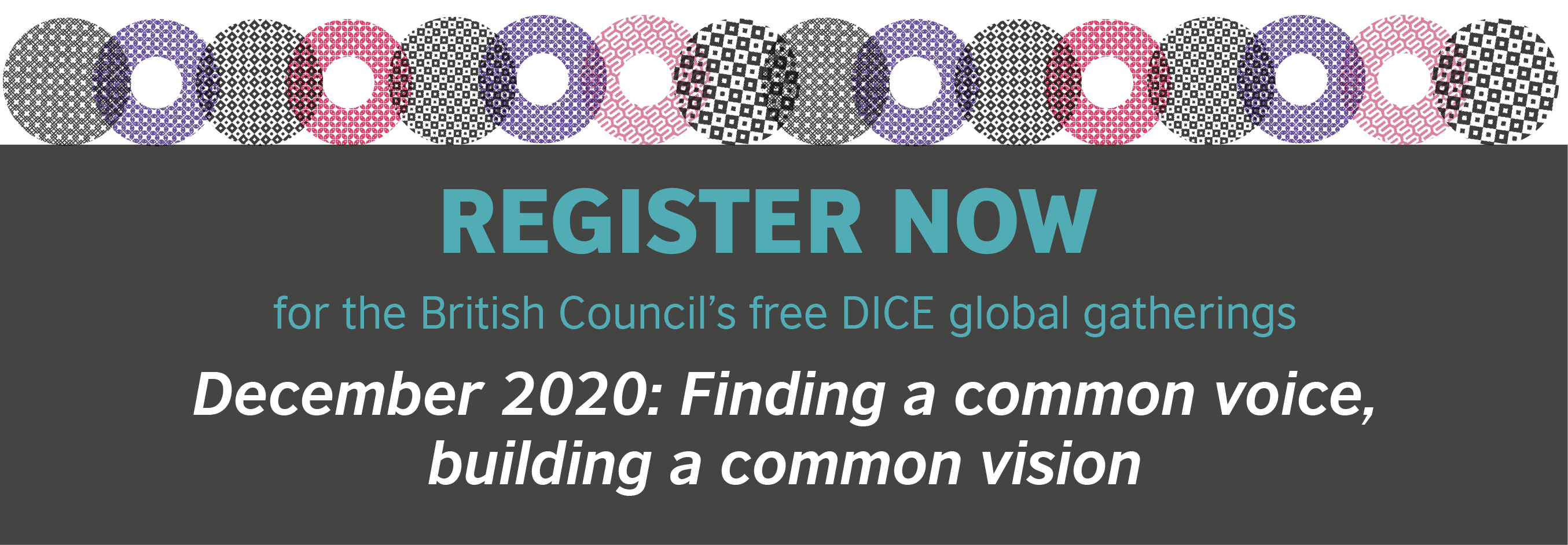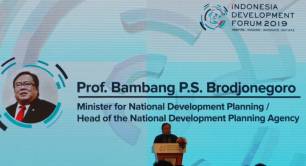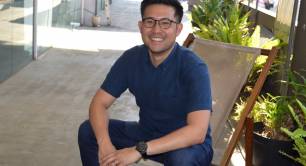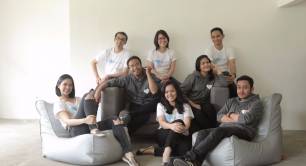Inclusive Islands: Embracing diversity in training social entrepreneurs across Indonesia
With more than 17,000 islands and 300 languages, Indonesia proved a challenging country in which to deliver a national social enterprise bootcamp. But having learned many valuable lessons, a similar project is now planned for Scotland.

This story is about Scotland, about Indonesia, and about island cultures. It is also about promoting creative social entrepreneurs and the enterprises they create.
The British Council DICE Fund has supported two organisations with a joint project to promote and support creative, inclusive enterprises with deep social purpose in Indonesia. The two are the Indonesian Platform Usaha Sosial (known as PLUS) and Scotland-based Social Enterprise Academy. PLUS provides advice, training and support to Indonesian social entrepreneurs and small businesses. SEA, which has an international network of hubs in 14 countries, defines its role as delivering transformational learning and development for people and organisations that are working for social change.
The basic idea of the partnership was to creatively combine SEA’s global learning content and PLUS’s network, local knowledge and connections to deliver comprehensive learning and development for the benefit of Indonesian creative social entrepreneurs.
The “Inclusive Islands” project was designed with the knowledge that Indonesia is a massive and diverse country, with a population spread out across islands. Not just a few hundred or thousand islands. In fact, the country is composed of 17,508 islands which between them are home to communities that speak more than 300 different native languages. For comparison, Scotland has 790 offshore islands and can claim three languages: English, Scots and Scottish Gaelic. While unable to encompass the vast distances and rich diversity across all of Indonesia the project at least made an attempt to embrace the country’s diversity. It was designed to provide a five-day training “bootcamp” in Jakarta for 20 social entrepreneurs from five regions: Medan, Jayapura, Makassar, Pontianak and Padang.
Even for PLUS’s Indonesian staff the challenges of working in remote areas was something of a shock. “One of our key lessons learnt is that every island is different,” says PLUS director Stephanie Arifin. “To be honest, I underestimated how different. Language is different, religion is different, culture is different. At the beginning I thought, ‘Well, I speak Bahasa Indonesia, let’s go!’ But it was a lot more difficult.” In fact, while Bahasa is the national language, it is actually a mother tongue for less than 10% of the population.
Somehow, we had assumed that everyone prays in Jakarta time
Gaby Gracia, one of Stephanie’s colleagues at PLUS who was involved in recruiting the entrepreneurs in remote areas, says they had to find a way to address unexpected language and dialect barriers. Complicating matters, communication links are of variable quality. Some islands have good broadband connections, others do not, and some don’t even have a reliable supply of electricity. And Stephanie says it was only when PLUS hosted the participants from five islands that she discovered there were different prayer times. “Somehow, we had assumed that everyone prays in Jakarta time. And yet, we overlooked something as obvious as that. After the first day we had to regroup and re-arrange schedules,” she says.
The project was eventually able to recruit 20 participants from five regions involved in a wide range of businesses. In such a complex environment it is perhaps understandable that there were difficult moments. The original plan had been to hold the bootcamp, and then offer a six-month period of online consultation and learning before a return visit to the participants.
But Stephanie says that after three or four months it was clear that “we were starting to lose some of them”, so a decision was taken to pivot the project, to send out Gaby to refresh the face-to-face relationships and get the participants to re-connect. PLUS is extremely grateful to the British Council for having a flexible response to the extra costs and project adjustments that were necessary to make this happen. Gaby was able to use these visits to reinforce links not just with participants (described as “impact initiators”) but also with island-based community organisations and stakeholders, who in their view will make a lasting contribution to the effectiveness of the entrepreneurial ecosystem.
Asked about project’s impact, Gaby and Jess Kemp from the Social Enterprise Academy immediately tell the story of Indah Fitriyani, one of the bootcamp participants. The mother of nine children and the only participant who wore a full body niqab, including a face-covering veil, Indah showed great determination.
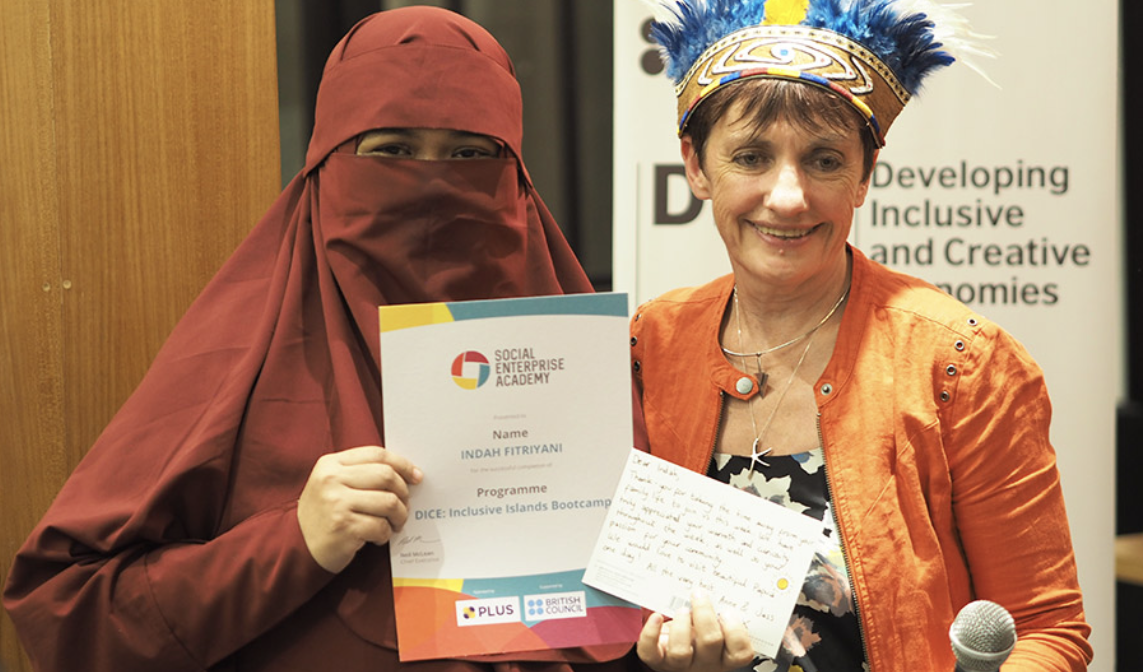 Indonesian social entrepreneur and bootcamp participant Indah Fitriyani with bootcamp facilitator Anna Martin
Indonesian social entrepreneur and bootcamp participant Indah Fitriyani with bootcamp facilitator Anna Martin
Because of her dress, Indah had been perceived as different and was actually denied access to other training courses
She launched a start-up involving local women collecting and recycling organic waste for the production of compost. But it failed to get off the ground, partly because the women saw no immediate benefit from joining in. Undeterred, and using many of the business planning skills taught at the bootcamp, Indah had pivoted, launching instead a social enterprise teaching computer and IT skills to the local community, with a particular focus on local teachers. This was progressing well.
Jess says: “Because of her dress, Indah had been perceived as different and was actually denied access to other training courses. For her, this project has been the perfect experience because she felt accepted by her peers and by the group. We had a farewell dinner at the end of the bootcamp and it was very emotional for all of us. It was powerful for her: she was accepted and valued. She’s an incredible lady. We were so happy to be able to support her.”
The Social Enterprise Academy has been so impressed by the project in Indonesia that it intends to run a version of it in Scotland. Anne Martin, the Social Enterprise Academy bootcamp facilitator says the Indonesian project had all its “ducks in a row” with adequate funding and development time, strongly supportive local partners and ground rules of trust and respect. The Social Enterprise Academy now intends to run a six-day programme focused on developing young entrepreneurs from the creative industries in the islands on the west coast of Scotland. The programme will be delivered in Gaelic.
“I am very passionate about the west coast of Scotland and the culture that we have here, and how much of that we have lost, so it is about re-establishing our own foundations and recognising that in a British and European setting as well as globally,” she says.
Jess adds: “We need to fiercely celebrate our culture and to celebrate cultural diversity. It is so exciting to bring this back to Scotland.”
The British Council and the DICE Collaborators (including the organisations featured in this article) invite you to join them in a series of conversations about reducing inequalities, collaborating across borders and oceans, and operating impact-focused enterprises at a time of profound change. These free, monthly live events are co-hosted by impact-focused organisations in Brazil, Egypt, Indonesia, Pakistan and South Africa and their partners in the UK, and draw on their experience of collaborating across borders to address challenges such as youth unemployment, environmental catastrophe, disability rights, and gender inequality in local communities. Find out more and register here.
The DICE Series tells the stories of collaborations which brought together enterprise development experts from the UK with specialists working in five emerging economies – Brazil, Egypt, Indonesia, Pakistan and South Africa – during 2019-20 with the aim of addressing entrenched issues of economic and social exclusion. Read more about the British Council’s DICE programme here.

